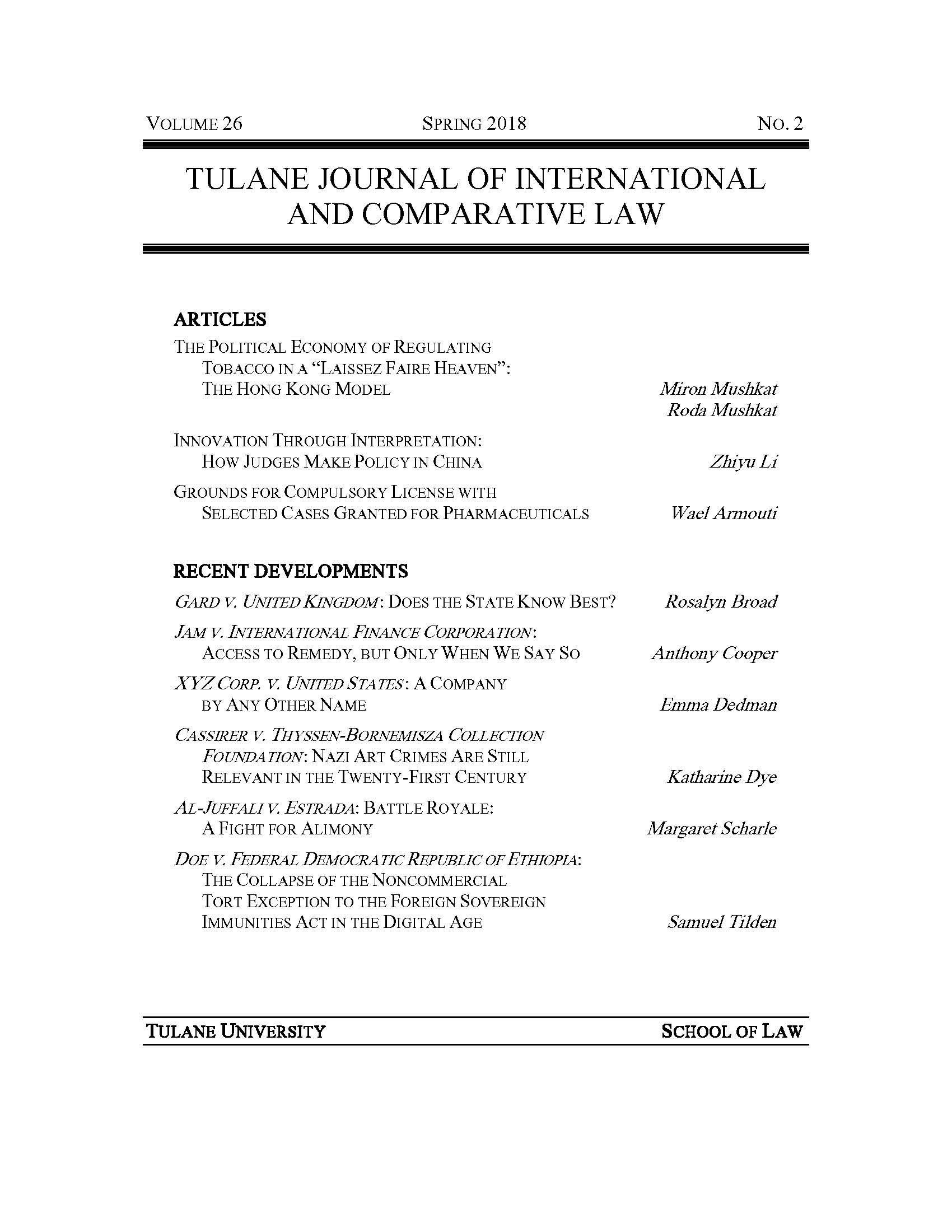Innovation Through Interpretation: How Judges Make Policy in China
Abstract
This Article studies judicial innovation and diffusion in civil law jurisdictions, with a focus
on China. It examines the lawmaking function of the Chinese judiciary, in particular, the
interaction between the Chinese Supreme People’s Court and lower courts in innovating legal
doctrines in response to social needs. The fruit of this inquiry should be of interest to researchers
seeking a theoretical understanding of the development of Chinese law and to practitioners who are
trying to predict legal and regulatory trends in China.
Since the 1980s, the confluence of two factors, the norm of judicial openness and the
medium of the Internet, have made prior judicial decisions an accessible and convenient resource
for Chinese judges, who are confronting hard cases or novel situations. The accessibility of
decided cases provides judges with an avenue to consult their peers throughout the country on legal
interpretation. These decisions serve as a forum for political communication between courts that
indicate the acceptability and feasibility of policy innovations in the law. To elucidate the
techniques that Chinese judges employ to make policy innovations in a jurisdiction that is statutebased,
I deploy a multi-faceted approach that encompasses case studies, as well as surveys and
interviews among Chinese judges and law clerks. This Article aims to demonstrate that judges
operating in a jurisdiction rooted in the civil law tradition are, nevertheless, able to render the law
more responsive to societal conditions through artful statutory interpretation. In addition, judicial
innovations in China survive due to the silent and incremental assimilation of prior judicial
decisions into Chinese judicial decision-making. Some of these innovations might, however, fade
because of political pressure or the transience of the social conditions that gave rise to them.
